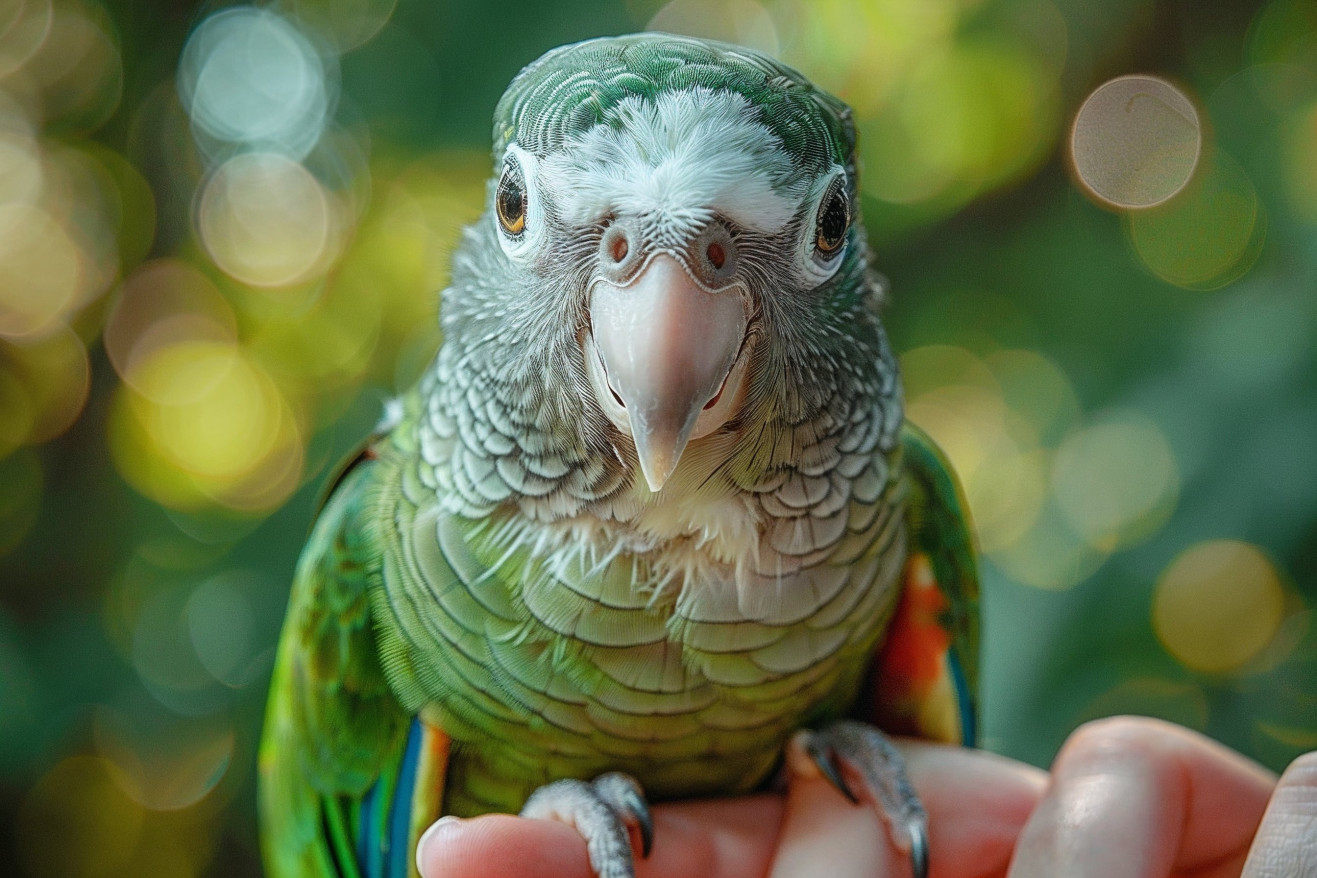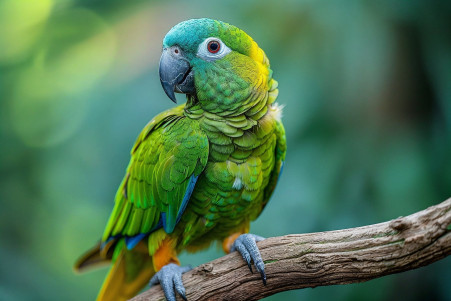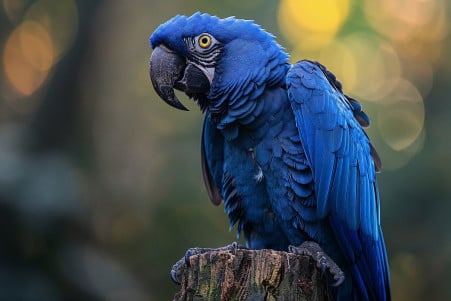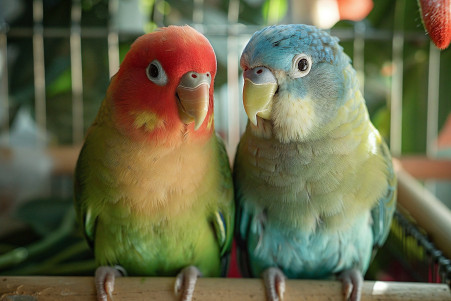Quaker Parrot Lifespan: How Long Do These Intelligent Birds Live?
11 June 2024 • Updated 10 June 2024

If you're thinking about adopting a Quaker parrot, it's important to know how long these intelligent birds live so that you can make sure you're prepared to care for them for their entire lifespan. Quaker parrots, or monk parakeets, live an average of 20-30 years with a healthy diet and good living conditions, although some have been known to live up to 40 years in captivity.
To give you a complete picture of how long Quaker parrots live, we'll look at research on lifespan that takes place in different habitats and under different conditions. This research takes into account things like diet, housing, and medical care, and it can help you make sure that you're doing everything you can to make sure your Quaker parrot lives a long, healthy life.
How long do Quaker parrots live?
Nutritional Needs for Longevity
A healthy diet is key to ensuring that Quaker parrots live long lives. According to VCA Animal Hospitals, their diet should be made up of mostly high-quality pellets (60-80%), with fresh fruits, vegetables, and a small amount of seeds and nuts rounding out the rest. An all-seed diet can lead to obesity, malnutrition, and other health issues that can shorten their lifespan.
Some of the specific foods that are recommended include Lafeber Nutri-Berries which have 40 essential nutrients, Kaytee Exact Rainbow Original or Cockatiel which has Omega-3s, sprouting seeds, pomegranates, blackberries, kale and broccoli. As noted on Pets on Mom.com, fresh fruits and vegetables are important because they provide the vitamins and minerals that parrots would eat in the wild. A diet that includes these foods will help prevent common problems like fatty liver disease and ensure that your bird is healthy and happy for years to come.
Housing and Environmental Enrichment
In order to promote a long and healthy life for Quaker parrots, they need a spacious cage or aviary that enables them to move around and be active. According to PetHelpful, the minimum cage size is 18" x 18" x 18", but bigger is always better for the bird's well-being. The cage should also include a variety of perches, toys, and other enrichment options to stave off boredom and encourage natural behaviors.
As mentioned by We Know Pets, Quakers are social birds that need daily interaction and attention from their owners. Proper housing and environmental enrichment can help prevent behavioral issues and promote physical and mental health, which can in turn lead to a longer life.
Veterinary Care and Health Maintenance
Regular veterinary care is important for keeping an eye on your Quaker parrot's health and catching any potential issues early. PetHelpful explains that some common health concerns for Quakers are obesity, respiratory problems, and reproductive issues. Regular grooming, including nail and wing trims, can help prevent accidents and maintain good health.
Owners should also watch out for hazards, like household poisons (e.g., Teflon) and loud noises, that can impact their Quaker's well-being. As mentioned by Pet Birds by Lafeber Co., Quaker parrots have sensitive respiratory systems, and exposure to Teflon products can be life-threatening. Making sure to get any illnesses or injuries treated right away is important for making sure your Quaker lives a long and healthy life.
With the right veterinary care, grooming, and environmental precautions, Quaker parrot owners can help their pets live their best lives.
Behavior and Training for a Happy Life
Quaker parrots are intelligent, social, and talkative birds. However, as noted by PetHelpful, without proper socialization and training, they can develop behavioral problems, including aggression, loud vocalizations, and feather plucking.
Building a strong relationship and using positive reinforcement training will help Quakers grow into healthy, well-adjusted pets, according to The Spruce Pets. In addition, mental stimulation, including playtime, foraging, and training, is important for their well-being, according to the Parrot Outreach Society.
Recognizing and working with their natural behaviors, including territorialism and seasonal hormones, can help people keep their pets happy and healthy. For example, as noted by The Spruce Pets, Quakers can become aggressive if they feel their territory is being invaded, so training and socialization are important.
By making sure to meet the specific behavioral needs of Quaker parrots, people can help these intelligent birds live long, happy lives as their pets.
Conservation and Regulatory Considerations
Quaker parrots, or monk parakeets, are listed as a species of 'Least Concern' by the International Union for Conservation of Nature (IUCN) per the ADW. Their numbers are growing in their native South America as well as in North America, where they are an introduced species, but they are also listed on CITES Appendix II per the Department of Natural Resources and Environment Tasmania.
In some areas, Quaker parrots are considered pests because of their success in urban environments and the damage they can do to power lines and other infrastructure according to the California Department of Agriculture as cited by ADW. Ownership laws and permitting requirements vary by state and country, so it's important to check local regulations before getting a Quaker parrot.
Responsible pet ownership and conservation programs can help ensure that Quaker parrots continue to thrive. By learning about their needs and behavior and the laws that govern them, pet owners can make sure these smart birds have happy lives while also supporting the responsible management of the species.
Conclusion: How to Help Your Quaker Parrot Live a Long, Happy Life
Quaker parrots are intelligent, social birds that can be wonderful pets if you're willing to make the necessary commitment. With a healthy diet, a large cage, regular veterinary care, mental stimulation, and responsible ownership, Quaker parrots can live to be between 20 and 30 years old or even older.
It's important to understand their needs and behaviors so that you can help them live their best lives. For example, as pointed out by PetHelpful, Quakers are active birds that need a relatively large cage and lots of toys to keep them from getting bored. Meanwhile, We Know Pets stresses the importance of a diet that includes fresh fruits and vegetables and high-quality pellets.
In addition, regular vet check-ups are important because Quaker parrots can be prone to obesity and respiratory issues. PetHelpful also warns that there are household dangers like Teflon that can affect their health. Finally, socialization and training from a young age, as suggested by The Spruce Pets, can help prevent behavioral issues and ensure that you and your bird have a happy life together.
If you're willing to meet their needs, Quaker parrots can be wonderful pets that bring joy to your life for many years.


